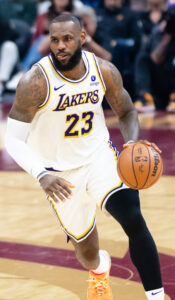Lincoln Riley takes responsibility for USC’s heartbreaking loss to No. 4 Penn State.
The opportunities were there all afternoon, just as they had been all season, with everything seemingly aligning for USC to finally overcome No. 4 Penn State. But one chance slipped away, then another, and another, until Lincoln Riley’s Trojans once again found themselves on the edge, driving late in search of a final opportunity after squandering so many before.
Time and again, the Trojans have been in this position—just inches from redemption, a few plays away from a critical win. Riley had consistently reminded his team of this over the past turbulent month, making it seem unimaginable that they would end up in the same spot again on Saturday.
Yet there they were, with the clock winding down late in the fourth quarter, the game tied, and Miller Moss just one completion away from setting up a potential game-winning kick that could erase all previous mistakes.
This was how Riley had envisioned it—draining the clock while holding onto three unused timeouts, planning for one key downfield pass, followed by a decisive kick. But Moss’ pass was intercepted, and a go-ahead kick in overtime missed wide left. With that, USC’s hopes of reaching the playoff slipped away for good in a heartbreaking 33-30 overtime loss to Penn State.
“It’s a gut punch,” Riley admitted. “No doubt about it.”
The defeat was especially painful given how much control USC had for most of the game. The running game was clicking, with Woody Marks and Quinten Joyner combining for 193 yards—the most Penn State’s defense had allowed all season. USC’s defensive front also held firm, limiting Penn State’s strong rushing attack, one of the best in the Big Ten, to just 118 yards, their second-lowest total of 2024.

That kind of progress might have made the difference against teams like Minnesota or Michigan, who had overwhelmed USC in previous losses.
But against Penn State, that cushion wasn’t enough.
Nittany Lions quarterback Drew Allar made up the difference, throwing for 391 yards—one of the highest totals USC has allowed in the past two seasons. Yet even with Allar’s performance, USC still had more than enough chances to win.
Twice he threw into heavy coverage, and both times USC’s defense came away with an interception. The first, grabbed by freshman Desman Stephens in the second quarter, was returned 45 yards to the Penn State 26-yard line. The second, a tipped pass caught by Easton Mascarenas-Arnold in the third quarter, left USC on Penn State’s 24.
But despite these two interceptions deep in Penn State territory, USC only managed two field goals, and six points weren’t enough.
Not with Penn State relentlessly testing USC’s defense, throwing all sorts of unusual formations and creative play designs at them. At one point, Penn State even had its tight end snap the ball, only for him to run downfield and catch a double pass for a 32-yard touchdown.
That tight end, Tyler Warren, accounted for an astounding 43% of Penn State’s total offense on Saturday, tormenting USC’s defense in a way reminiscent of a 2022 game against Utah, when Dalton Kincaid, now with the Buffalo Bills, racked up 16 catches for 234 yards in a single night.
Warren’s day, with 17 catches for 224 yards, was just as baffling.
“We had a good game plan,” safety Kamari Ramsey said. “We should’ve made the plays to stop him.”
Those plans seemed to unravel right after halftime, just when USC had often been at its strongest this season. The Trojans’ first three drives sputtered, while Penn State surged back, scoring 14 points in the third quarter.
USC responded with a crucial nine-play drive, led by Marks, who touched the ball six times, and regained the lead with six minutes remaining.
One defensive stop after that might have been enough. But on two fourth-and-long situations, Allar managed to convert both, once again making USC pay for missed opportunities.
“We’ve all had our chances,” Riley said. “We all own it.”
However, the most pressing questions on Saturday were directed at USC’s coach, who has now lost eight of his last 13 games—a worse stretch than his predecessor, Clay Helton, ever experienced.
All three of USC’s losses this season have been decided on the final possession, and Riley was quick to point out that the team has faced “the toughest schedule in the country” over the first six weeks. But after weeks of highlighting those narrow margins—and with USC’s playoff hopes now likely out of reach—Riley admitted that the responsibility for the team’s 3-3 record falls on him.
But after a third loss in four weeks, the question of blame no longer mattered—nor did how close USC had come in those games. The damage was done. The playoff was now out of reach, and no matter how Riley framed the season, even he knew there was no avoiding that reality.
“We have to be able to finish, and it all comes back to me in the end,” Riley said. “That’s why they call me the head coach.”





